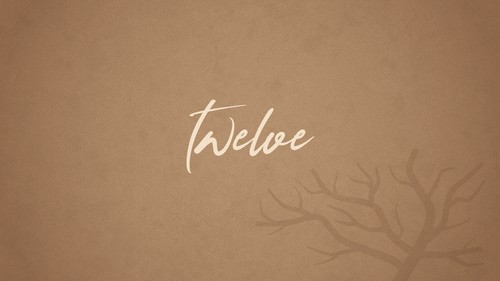Experiencing God - Day 12

Day 12 - Tuesday, February 20
Read John 5
Highlight
When we read the accounts of Jesus’ life, it can sometimes catch us off guard what events trigger people wanting to kill him. John 5 includes one of those events, where apparently Jesus healing someone on the Sabbath invoked extreme levels of anger. To understand why the response was extreme, it is important to understand what argument Jesus is making for his authority to be able to heal on the Sabbath in vv16-17.
In rabbinic tradition there was a discussion about whether it could be said that God stopped working entirely on the Sabbath. After all, if God ceased work entirely surely the universe itself would unravel. Therefore, reasoned the rabbis, while God did indeed rest on the Sabbath, this was not a rest of completely ceasing from activity but rather a symbolic rest that indicated that this day was special. Jesus is referencing this theological position when he says that like God, he is still working on the Sabbath. For this self-defense to be valid, the same factors that apply to God must apply to Jesus. It’s an extraordinary claim, and it’s why the Jewish leaders responded with such extreme anger.
Reflection & Prayer
For this reading plan we will be using a tool to guide our study of Scripture that’s called the S.O.A.P. Method. It stands for Scripture, Observation, Application, and Prayer. We recommend you use a journal with this method and write out your thoughts on each of these areas for each day of reading. It doesn’t have to be long-winded and you don’t need a fancy journal. But for anyone that has not journaled before, the benefit is that it often helps us focus and avoid distractions during prayer and Bible study.
S.O.A.P. Method
Scripture - Pick a verse or two that stood out to you and write it in your journal. Be looking for a “Holy Spirit Highlight.” What did you read and think “I needed to hear that” or felt like it was written just for you?
Observation - Now write some observations about the verse(s) or passage. What is this passage or verse saying? About God? About people? How is Jesus revealed in these verses?
Application - Now write a few sentences on how this passage applies to your life. Is there truth about God that you are to believe? A promise to receive? Is the Holy Spirit convicting you of something you need to do or stop doing in light of God’s truth?
Prayer - Now write out a prayer to God in response to this Scripture. This is a way to turn God’s Word to you back to Him. Be honest and express your heart to Him. God always listens and He delights in your prayers. (Psalm 34:15; Proverbs 15:8)
Read John 5
Highlight
When we read the accounts of Jesus’ life, it can sometimes catch us off guard what events trigger people wanting to kill him. John 5 includes one of those events, where apparently Jesus healing someone on the Sabbath invoked extreme levels of anger. To understand why the response was extreme, it is important to understand what argument Jesus is making for his authority to be able to heal on the Sabbath in vv16-17.
In rabbinic tradition there was a discussion about whether it could be said that God stopped working entirely on the Sabbath. After all, if God ceased work entirely surely the universe itself would unravel. Therefore, reasoned the rabbis, while God did indeed rest on the Sabbath, this was not a rest of completely ceasing from activity but rather a symbolic rest that indicated that this day was special. Jesus is referencing this theological position when he says that like God, he is still working on the Sabbath. For this self-defense to be valid, the same factors that apply to God must apply to Jesus. It’s an extraordinary claim, and it’s why the Jewish leaders responded with such extreme anger.
Reflection & Prayer
For this reading plan we will be using a tool to guide our study of Scripture that’s called the S.O.A.P. Method. It stands for Scripture, Observation, Application, and Prayer. We recommend you use a journal with this method and write out your thoughts on each of these areas for each day of reading. It doesn’t have to be long-winded and you don’t need a fancy journal. But for anyone that has not journaled before, the benefit is that it often helps us focus and avoid distractions during prayer and Bible study.
S.O.A.P. Method
Scripture - Pick a verse or two that stood out to you and write it in your journal. Be looking for a “Holy Spirit Highlight.” What did you read and think “I needed to hear that” or felt like it was written just for you?
Observation - Now write some observations about the verse(s) or passage. What is this passage or verse saying? About God? About people? How is Jesus revealed in these verses?
Application - Now write a few sentences on how this passage applies to your life. Is there truth about God that you are to believe? A promise to receive? Is the Holy Spirit convicting you of something you need to do or stop doing in light of God’s truth?
Prayer - Now write out a prayer to God in response to this Scripture. This is a way to turn God’s Word to you back to Him. Be honest and express your heart to Him. God always listens and He delights in your prayers. (Psalm 34:15; Proverbs 15:8)
Posted in Experiencing God
